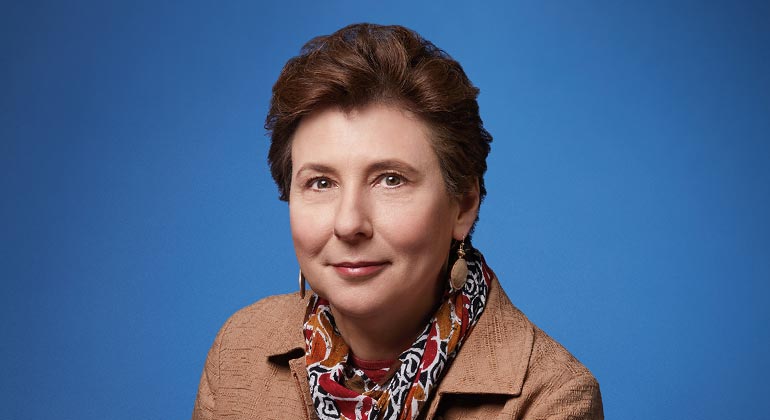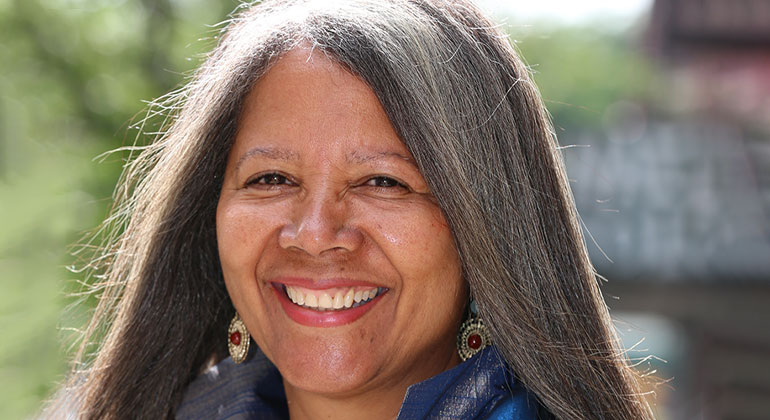Faculty at Mount Sinai’s Arnhold Institute for Global Health Receive Prestigious Appointments
The Arnhold Institute for Global Health of the Icahn School of Medicine at Mount Sinai announced significant appointments today for two of its faculty members, at the Council on Foreign Relations (CFR), and the National Institute of Minority Health and Health Disparities (NIMHD) at the National Institutes of Health.
Sandeep P. Kishore, MD, PhD, Associate Director of The Arnhold Institute and Assistant Professor in the Department of Medicine and the Department of Health System Design & Global Health, Icahn School of Medicine at Mount Sinai, has been elected to a five-year term as a member of the Council on Foreign Relations. Founded in 1921, the Council on Foreign Relations is an independent, nonpartisan membership organization, think tank, and publisher specializing in U.S. foreign policy and international affairs. With more than 4,900 members, the council’s roster features top government officials, renowned scholars, business executives, acclaimed journalists, prominent lawyers, and distinguished professionals from the nonprofit sector.
Dr. Kishore is the founder of the global non-profit Young Professionals Chronic Disease Network; his work has focused on the prevention and control of chronic illness in poor communities globally. In addition to his CFR membership, Dr. Kishore is also the inaugural The Lancet Awardee for Community Service, a Massachusetts Institute of Technology Dalai Lama Center Fellow, and a Paul & Daisy Soros Fellow. His work has been featured in the United Nations General Assembly, TEDMED, the World Health Organization Executive Board and in journals including Health Affairs, The Lancet and JAMA. Dr. Kishore received his MD and PhD from Weill Cornell Medical College, with further clinical training at Yale University.
James H. Faghmous, PhD, Chief Technology Officer, The Arnhold Institute for Global Health, and Assistant Professor in Population Health Science and Policy, Icahn School of Medicine, has been selected as a 2016 National Institute of Minority Health and Health Disparities (NIMHD) Health Disparities Research Institute Scholar. The NIMHD leads scientific research to improve minorities and other underserved populations—building far-reaching and diverse collaborations and partnerships around health disparities.
Dr. Faghmous' research applies artificial intelligence to various large non-clinical datasets (e.g. social, economic, policy, etc.) to create equitable healthcare systems. Dr. Faghmous completed his PhD from the University of Minnesota under renowned computer scientist Vipin Kumar, PhD, at the intersection of data mining and global climate change. His publications and data products are exemplars of “theory-guided data science,” which emphasizes the importance of deep relationships between computer science methods and domain expertise.
“The Arnhold Institute is committed to deploying a new generation of health system strategists and leaders who can think globally and break down barriers between U.S. health systems and the world around us,” said Prabhjot Singh, MD, PhD, Director of The Arnhold Institute for Global Health and Chair, Department of Health System Design and Global Health, Icahn School of Medicine at Mount Sinai. “Dr. Kishore and Dr. Faghmous possess the type of collaborative leadership and innovative thinking required to transform how health care is delivered in communities domestically and abroad. I congratulate each of them on these acclaimed appointments, and couldn’t be more proud to have them as colleagues.”
About the Arnhold Institute for Global Health
The Arnhold Institute for Global Health at the Icahn School of Medicine, Mount Sinai Health System, seeks to improve the health of people and the communities they live in, both in the United States and abroad. The Arnhold Institute serves as a global arm of the Mount Sinai Health System, leading research on the design of more equitable and effective care models that are disseminated through digital products, training systems and input on policy design.
About the Mount Sinai Health System
Mount Sinai Health System is one of the largest academic medical systems in the New York metro area, with 48,000 employees working across eight hospitals, more than 400 outpatient practices, more than 600 research and clinical labs, a school of nursing, and a leading school of medicine and graduate education. Mount Sinai advances health for all people, everywhere, by taking on the most complex health care challenges of our time—discovering and applying new scientific learning and knowledge; developing safer, more effective treatments; educating the next generation of medical leaders and innovators; and supporting local communities by delivering high-quality care to all who need it.
Through the integration of its hospitals, labs, and schools, Mount Sinai offers comprehensive health care solutions from birth through geriatrics, leveraging innovative approaches such as artificial intelligence and informatics while keeping patients’ medical and emotional needs at the center of all treatment. The Health System includes approximately 9,000 primary and specialty care physicians and 11 free-standing joint-venture centers throughout the five boroughs of New York City, Westchester, Long Island, and Florida. Hospitals within the System are consistently ranked by Newsweek’s® “The World’s Best Smart Hospitals, Best in State Hospitals, World Best Hospitals and Best Specialty Hospitals” and by U.S. News & World Report's® “Best Hospitals” and “Best Children’s Hospitals.” The Mount Sinai Hospital is on the U.S. News & World Report® “Best Hospitals” Honor Roll for 2024-2025.
For more information, visit https://www.mountsinai.org or find Mount Sinai on Facebook, Twitter and YouTube.

Changes in Microbiome Predict Risk for Sexually Transmitted Disease
Jan 15, 2025 View All Press Releases
Mount Sinai Establishes Department of Public Health
Mar 12, 2024 View All Press Releases



